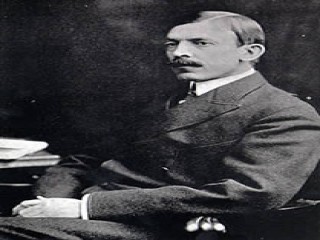
Hermann Biggs biography
Date of birth : 1859-09-29
Date of death : 1923-06-28
Birthplace : Trumansburgh, New York, U.S.
Nationality : American
Category : Science and Technology
Last modified : 2011-06-15
Credited as : Physician, public health,
Hermann Biggs was born on Sept. 29, 1859, in the village of Trumansburgh, N.Y. . He attended the Trumansburgh and Ithaca academies and entered Cornell University in 1879. Deciding on a medical career, he left Cornell in 1881 to study at Bellevue Hospital Medical College in New York City. He returned to Cornell, however, to receive his degree in 1882. In 1883 Bellevue awarded him a medical degree. During his internship at Bellevue, Biggs developed an interest in microscopic pathology and the new science of bacteriology. In 1884 he visited Germany, a pioneering center of the germ theory of disease, and in 1885 he visited the laboratories of Louis Pasteur in France. Frequent trips to Europe in later years kept him in constant contact with the latest developments in bacteriology. When he returned from his first European trip, he became a major member of the newly established Carnegie Laboratory at Bellevue, devoted to bacteriology. This was the first bacteriological laboratory in the United States to apply this science directly to public health—an application that was essentially the result of Biggs's guidance.
When a division of bacteriology was created within the New York City Department of Health in 1892, Biggs was appointed chief inspector. In 1901 he was appointed general medical officer of New York City and in 1914 became the commissioner of health for the state of New York. From such positions he guided the development of public health measures in New York, and New York, in turn, guided the nation.
One of Biggs's greatest fights was waged against tuberculosis, thought by many to be a nutritional disorder. As early as 1889 Biggs noted the potential public health importance of the discovery of the tubercle bacillus in Germany by Robert Koch. Fighting older ideas, he succeeded in establishing and enforcing control measures based on sound reasoning in bacteriology. These included the reporting of cases to the health authorities and the disinfection of places in which tubercular patients lived. He also advocated the establishment of special sanatoriums.
Biggs was instrumental in the adoption of programs for the identification and control of venereal disease through laboratory analysis; he advocated nursing measures to combat infant mortality; and he introduced, on an administrative level, the use of vaccines to prevent disease. He also advocated the concept of a public health center that would include clinics, hospitals, and diagnostic facilities. His ideas were defeated then, but the health care center has since become reality.
Biggs died on June 28, 1923. He was survived by his wife of 25 years, Frances Richardson Biggs.
















